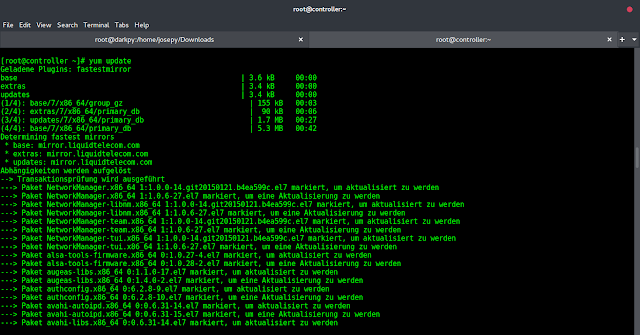The Java.util.Vector.setSize() is a method of Vector class that is used to set the new size of the vector. If the new size of the vector is greater than the current size then null elements are added to the vector is new size is less than the current size then all higher-order elements are deleted.
This method modified the size of the Vector to the newSize and does not return anything.
Syntax:
public void setSize(int newSize)
Parameters: This method accepts a mandatory parameter newSize of the vector.
Return Type: NA
Exceptions: ArrayIndexOutOfBoundsException
Note: If new size is negative then it will throw Runtime Error
Example 1:
Java
// Java Program to Illustrate setSize() method// of Vector class// Importing required classesimport java.util.*;// Main classpublic class GFG { // Main driver method public static void main(String[] args) { // Creating object of Vector class // Declaring object of string type Vector<String> v = new Vector<String>(); // Inserting elements into the vector // using add() method // Custom input elements v.add("Geeks"); v.add("for"); v.add("Geeks"); v.add("Computer"); v.add("Science"); v.add("Portal"); // Printing vector before calling setSize() method System.out.println("Initially"); System.out.println("Vector: " + v); System.out.println("Size: " + v.size()); // Setting new custom size v.setSize(8); // Printing vector after calling setSize() System.out.println("\nAfter using setSize()"); System.out.println("Vector: " + v); System.out.println("Size: " + v.size()); }} |
Initially Vector: [Geeks, for, Geeks, Computer, Science, Portal] Size: 6 After using setSize() Vector: [Geeks, for, Geeks, Computer, Science, Portal, null, null] Size: 8
Example 2: When new size is positive
Java
// Java program to Illustrate setSize() method// of Vector class// Where size is positive// Importing utility classesimport java.util.*;// Main classpublic class GFG { // amin driver method public static void main(String[] args) { // Creating vector object of string type Vector<String> v = new Vector<String>(); // Inserting elements into the vector //. using add() method // Custom input elements v.add("Geeks"); v.add("for"); v.add("Geeks"); v.add("Computer"); v.add("Science"); v.add("Portal"); // Printing vector before calling setSize() System.out.println("Initially"); System.out.println("Vector: " + v); System.out.println("Size: " + v.size()); // Setting new size v.setSize(4); // Printing vector after calling setSize() System.out.println("\nAfter using setSize()"); System.out.println("Vector: " + v); System.out.println("Size: " + v.size()); }} |
Initially Vector: [Geeks, for, Geeks, Computer, Science, Portal] Size: 6 After using setSize() Vector: [Geeks, for, Geeks, Computer] Size: 4
Example 3: When the new size is negative
Java
// Java program to Illustrate setSize() method// of vector class// Where size is negative// Importing utility classesimport java.util.*;// Main classpublic class GFG { // Main driver method public static void main(String[] args) { // Creating Vector class object of string type Vector<String> v = new Vector<String>(); // Inserting elements into the vector // using add() method v.add("Geeks"); v.add("for"); v.add("Geeks"); v.add("Computer"); v.add("Science"); v.add("Portal"); // Printing vector before calling setSize() System.out.println("Initially"); System.out.println("Vector: " + v); System.out.println("Size: " + v.size()); // Try block to check for exceptions try { // Setting new size v.setSize(-8); } // Catch block to handle exceptions catch (Exception e) { // Display message when exceptions occurred System.out.println("Trying to change " + "size to '-8'\n" + e); } }} |
Output:





